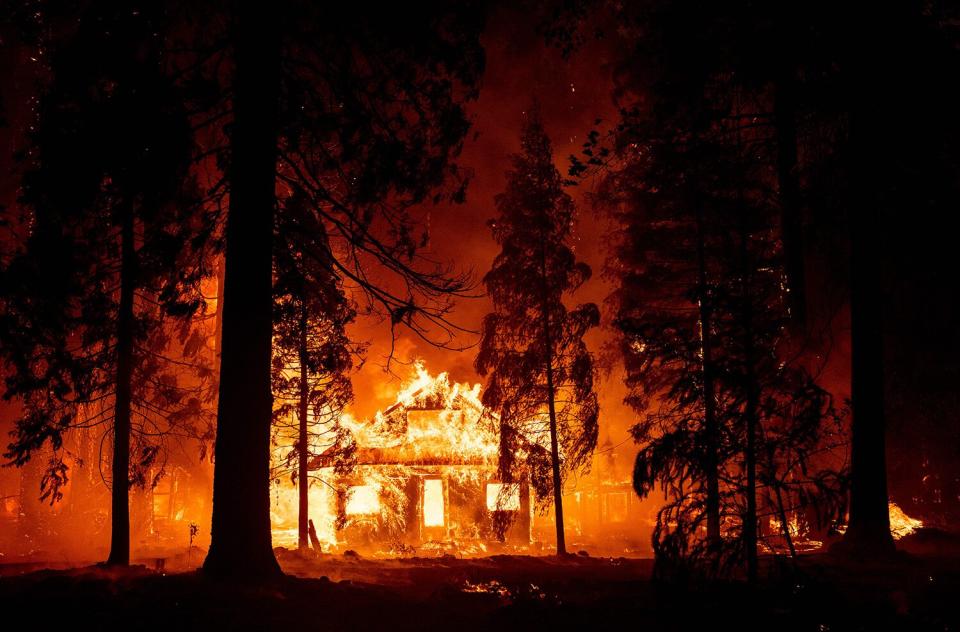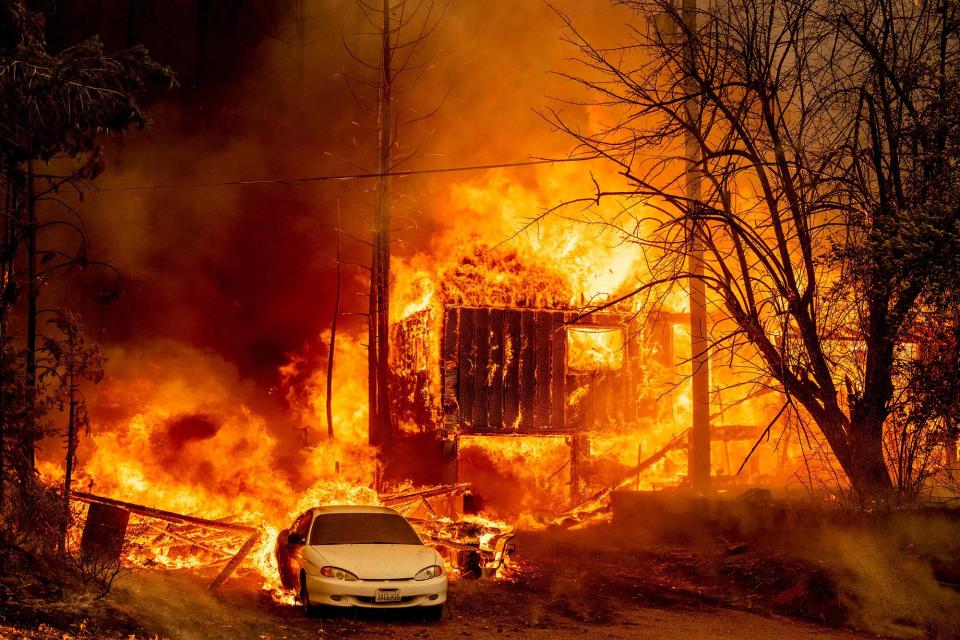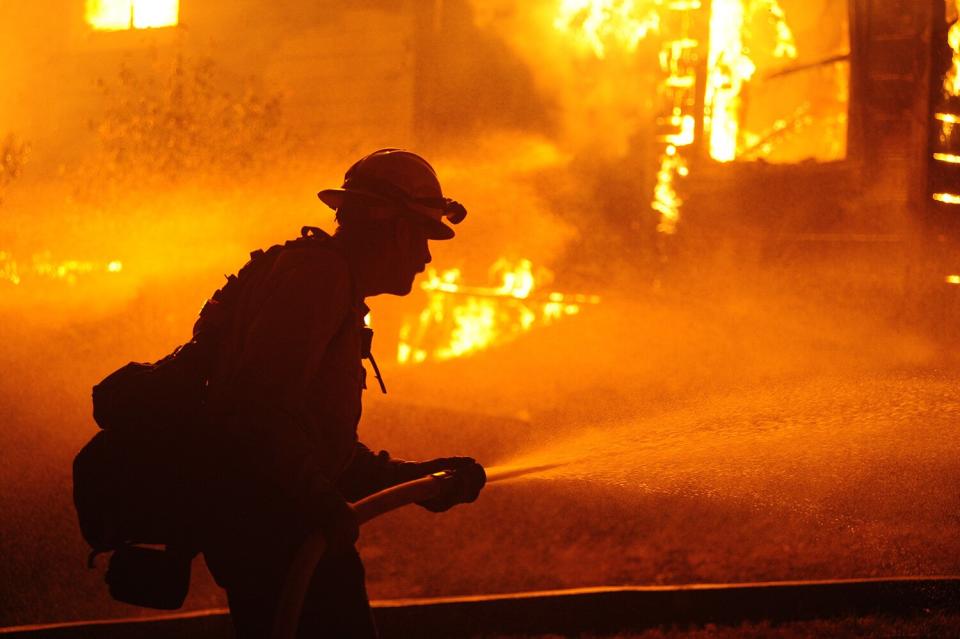How to Help Victims of the Western U.S. Wildfires as Hundreds of Homes Are Destroyed

A number of wildfires have continued to burn across the western part of the United States, bringing with them historic devastation and the displacement of hundreds of residents.
According to the National Interagency Fire Center (NIFC), a total of 104 large fires are currently burning across 14 states with 2.4 million acres scorched since Jan. 1.
A majority of the fires are burning in Montana, Idaho, Oregon, Washington and California, but have also been reported in states including Wyoming, Nevada, Arizona and New Mexico, the NIFC reported.
In California alone, 6,347 incidents have burned through a total of 959,611 acres and destroyed at least 1,692 structures, according to Cal Fire. At least 11 fires are currently active in the state, per the NIFC.
The Dixie Fire, which recently became the largest single wildfire in California history, is one of those active blazes, scorching through more than 500 homes since it sparked last month. Cal Fire reported that it is only 30 percent contained as of Thursday morning.

JOSH EDELSON/AFP via Getty Dixie Fire
RELATED: Video Captures Fire Destroying 'Beautiful,' Historic Town in California: 'My Heart Is Broken'
Part of its impact includes destroying the small community of Greenville, in Northern California, where the intense flames burned through businesses, structures and homes of its approximately 800 residents, according to NBC News.
The scene looked like something out of an apocalypse as the blaze left the Gold Rush-era town in ruins — approximately 75 percent was destroyed — and a smoky haze covered the skies, The Sacramento Bee reported.
In Nevada, the River Fire has burned through 2,619 acres but is currently 90 percent contained, Cal Fire reported. At least three people sustained injuries from the blaze and 142 structures have been destroyed, according to the fire agency.
Up north, in Southeast Montana, the Richard Spring and Lame Deer fires were "very active," with winds reaching 25-35 MPH and a relative humidity of 15-25 percent, according to the NIFC.
Washington also experienced more activity with its fires, with the "hot, dry, and unstable conditions" causing the Spur, Cub Creek 2, and Schneider Springs Fires to pick up steam, per the NIFC.

JOSH EDELSON/AFP via Getty The Dixie Fire
RELATED: Largest Single Wildfire in Calif. History Destroys Nearly 550 Homes, Threatens More
Firefighters battling the blazes have been told to bring a personal, three-day stash of food, water and other supplies as they face a "critically low" shortage in communication equipment, NBC News reported, citing a memo from the NIFC.
As the flames continue to rage, areas across the Pacific Northwest have also been grappling with the extreme heat, which has been fueling the wildfires, according to NBC News.
This week, coastal and inland cities were forecasted to experience temperatures in the high 90s and 100s — approximately 10-20 degrees above their average — as the region marks its sixth heat wave this year, the outlet reported.

Neal Waters/Anadolu Agency via Getty Dixie Fire
With the devastation so widespread across the United States, there are various ways that people can help the victims of the wildfires, as well as those on the frontlines.
For those looking to support people impacted by the fires, the American Red Cross has an online donation platform that allows donors to direct the funds wherever they choose.
GlobalGiving's Wildfire Relief also offers emergency funding to local efforts providing essentials to wildfire victims in need.
Other ways people can help the victims is through GoFundMe's California Wildfire Relief Fund, which aims to "support a range of needs" by issuing "grants to individuals, organizations and communities that have either been impacted themselves or are dedicated to helping." (Read more about it here.)
People can also show their support for the first responders through The California Fire Foundation, which "provides emotional and financial assistance to families of fallen firefighters, firefighters and the communities they protect."

